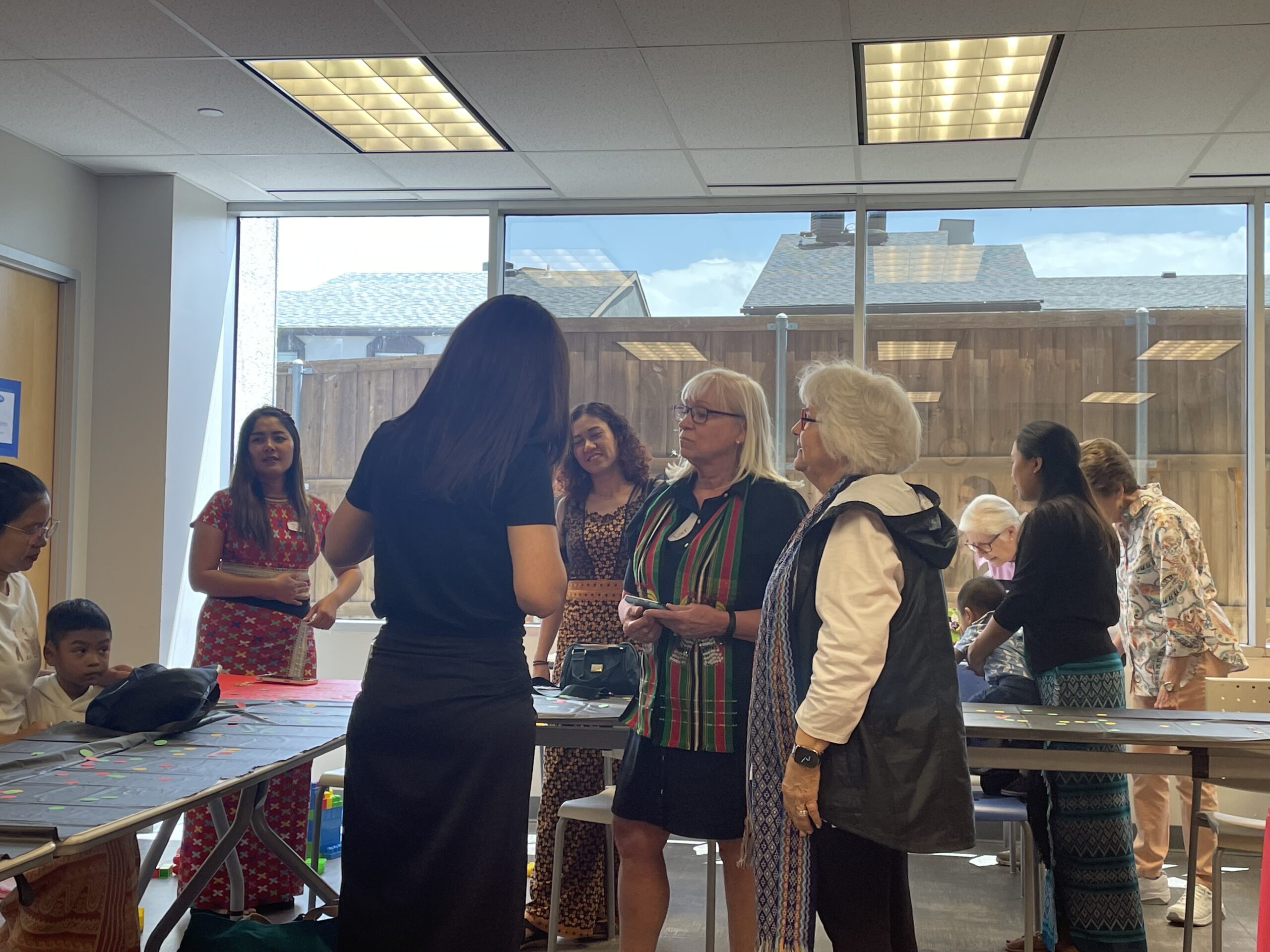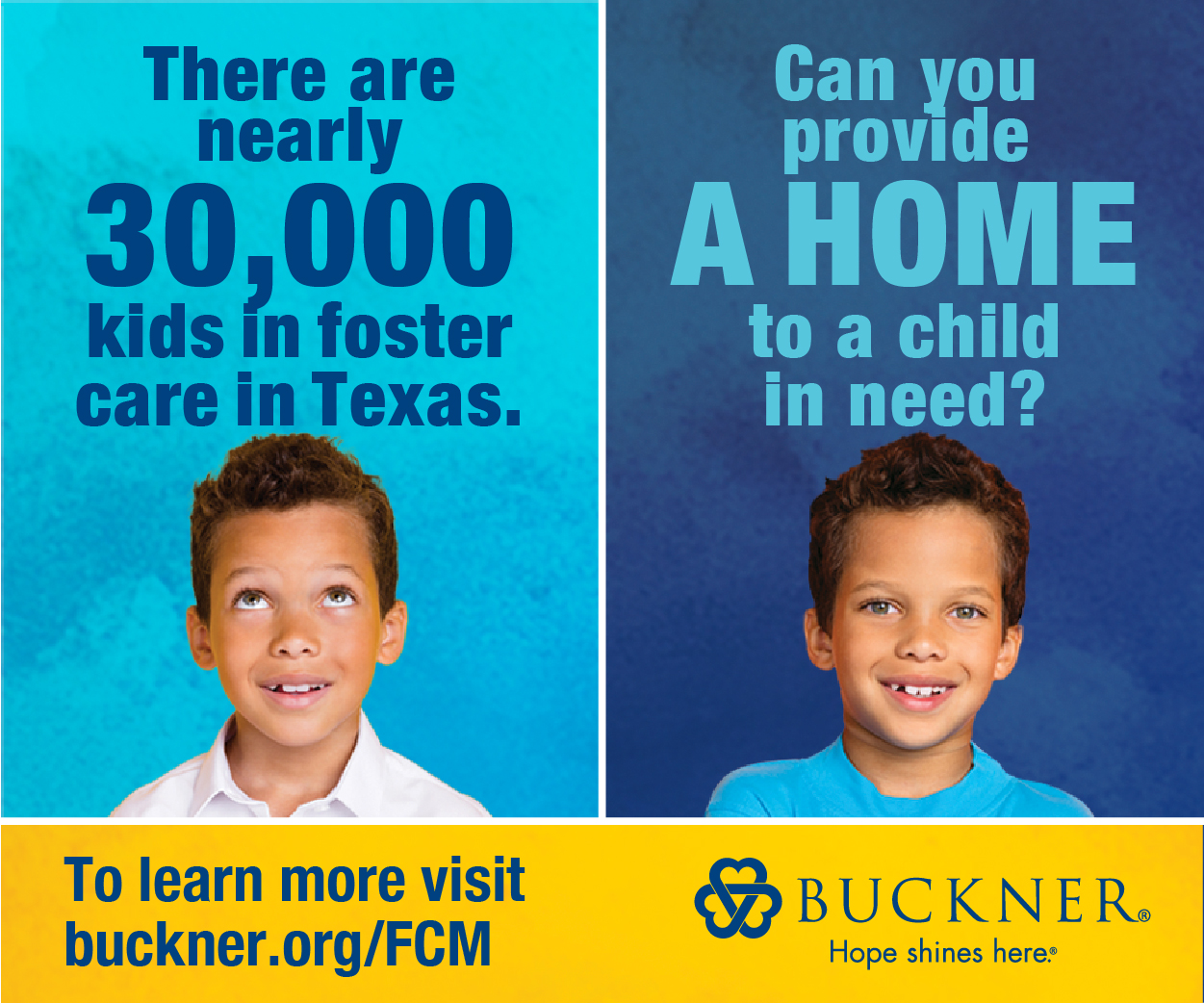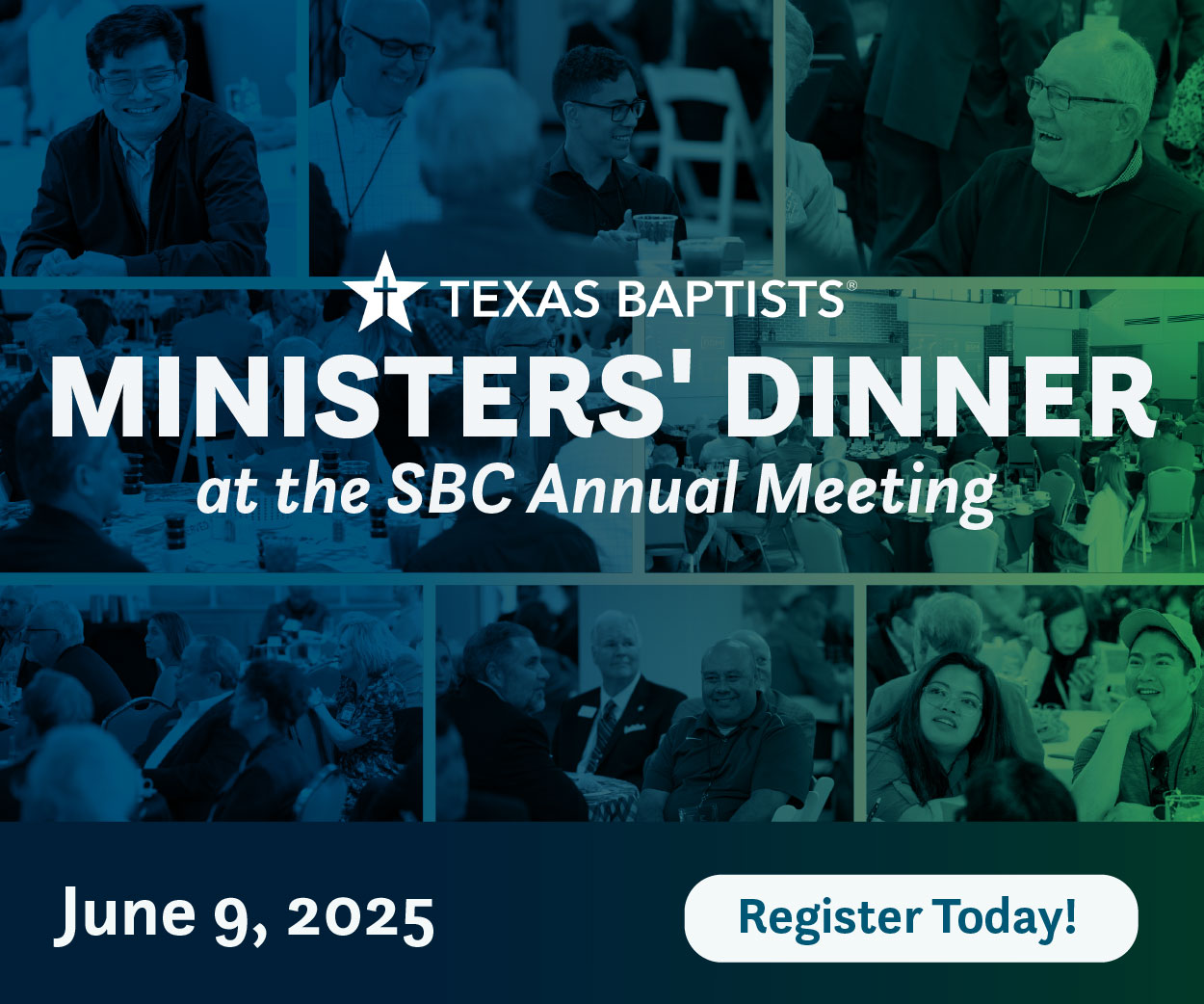DALLAS—Six months is the allotted time for refugee assistance to those resettled in the United States from countries torn by conflict and oppression, said Helen Cingpi director of Texas Baptists’ Project: Start.
That’s six months to begin to learn a new language, secure a job to support a family, learn how to navigate complex systems of support, settle into a new home with differing customs, religions, expectations, foods, often having had little access to formal education in countries of origin.
Six months to become American. Six months is not enough. So, enter Pastor Helen.
Cingpi has an office, but she spends her days in the community with the clients she serves in the Vickery Meadows neighborhood of Dallas.

Home visits
On this day, she visited the apartment of Mohamed Tahir. Tahir has four children, ranging in age from 4th grade to 4 weeks old, two girls and two boys, and a wife.
Tahir welcomed Cingpi in—shoes left at the door, as is the custom in Myanmar where he and Cingpi are from. Tahir spread a mat on the floor and invited her to sit for tea.
Cingpi was there to check on the family’s needs. But she said it was customary for all her clients to offer refreshments anytime she came by, so each visit takes some time.
Everyone took turns entertaining and holding the baby to give mom a break, while Tahir prepared refreshments. Tahir’s wife spoke only Rohingya. So, Cingpi conversed solely with him in their shared language, Burmese.
The Tahirs 2-year-old son played with a toy car and, wide-eyed but silent, kept a close watch on his visitors.
Sign up for our weekly edition and get all our headlines in your inbox on Thursdays
“He is growing up speaking three languages, Burmese, Rohingya and English with his older sister,” Tahir explained through Cingpi’s interpretation.
But Tahir said he will not speak to anyone but his sister.
Tahir served pizza along with the tea, followed by fried jackfruit Mrs. Tahir had made for Ramadan. And Pastor Helen set about on the mission she came to accomplish.
Tahir pulled out a stack of official letters, written in English. He had applied for food assistance and Medicaid for the family, Cingpi explained. Medicaid was approved, but they were yet to have SNAP benefits reinstated. Cingpi made a call to Texas Health and Human Services to help facilitate reinstatement.
She explained how sometimes the representative on the other end of the line would allow her to translate, but this time, they had to wait for an official interpreter to be called in.
Permissions for the interpreter were required of Tahir in English, with the representative tersely stating only he was allowed to speak.
After close to an hour on the phone, the representative’s tone softened, and she agreed to reopen the mistakenly closed application.
Then Cingpi made another call to learn the steps the family will need to take to secure the second daughter’s registration in kindergarten next year.
The Tahirs have been in Dallas six years. He works the night shift at a pharmaceutical company.
“The job he does requires a lot of precision,” he said. “And many people have recently lost their jobs for making mistakes.
“But it’s easy for me,” he said matter-of-factly.
The job may be easy, but making the small salary stretch is difficult, Cingpi explained: “He has health problems requiring monthly medications at a cost of $300. On top of that, he has the rent on their one-bedroom apartment, the car.”
While the family qualifies for Medicaid, Tahir personally does not, she explained.
He had no formal education in Myanmar and speaks little English, so opportunities to make more money are limited, Cingpi said.
Yet, Tahir said he feels welcome in the United States.
“Back in Myanmar, even though we were a long time in the country, back further than grandparents, we were not accepted. The Rohingya were not accepted as citizens. But in America, they accept us as citizens of the country,” he said.
They are happy and grateful to be here, Tahir said. “But at the same time, he is sad for Myanmar,” where all their extended family still lives.
“They used to live in a village there, where they were born, but because of the war, the parents, their mothers, now have to live in a refugee camp in Rakhine state,” Cingpi translated.
Before leaving, Tahir allowed prayer for he and his family to be successful in obtaining the assistance they need and for their daughter’s registration and transition into kindergarten to go smoothly.
Cingpi said she tries to do home visits at least twice a week. Her work might also require helping with transportation to appointments. The women usually do not drive, and husbands often work during the day, she said.
Sometimes she helps fill out forms or makes referrals to other agencies who are better qualified than she to help with immigration questions, always seeking opportunities to share Christ with the clients she serves, as they are open to hearing the gospel, she said.
Culture and Community

From the Tahirs’ apartment, Pastor Helen went to the weekly women’s group she helps host with several women from Park Cities Baptist Church.
This group of around a dozen Burmese women and their preschool-age children convenes every Tuesday at the Northwest Community Center—a ministry of Northwest Bible Church which hosts a low-cost clinic, meeting spaces and other aid to the many refugees in Vickery Meadows. Most of the ladies who attend this group are Buddhist.
It was heritage week, so Cinpgi changed into her celebratory longyi, a traditional cloth tied to make a long skirt, to recognize the Myanmar New Year water festival, Thingyan. The women brought traditional Thingyan dishes to share. Tea leaf salad, sticky rice, noodles, rainbow salad, a yellow bean puree, and a variety of desserts attested to the hospitality and culinary expertise of the Burmese culture.
Terri Heard and Lorri Lambreth, from Park Cities, lead the group each week, and Cingpi translates. Once a month, they meet in Lambreth’s home for a cooking day.
A group from Park Cities also purchased crockpots for all the ladies. Women from the church host five Spanish-language women’s groups, as well.
Heard said she had been wanting to start a group for the Burmese, because she knew they were the second-biggest language group in the area, behind Spanish, and she knew of Pastor Helen.
She reached out to Cingpi about starting the group, and they had been blessed to meet with the women since then, she said.
“I wanted to be intentional about making connections,” Heard said. “Otherwise, our paths would never cross.”
Cingpi came to the United States nine years ago to study Bible. She graduated from Christ for the Nations Institute in 2015.
Cingpi has served as director of Project: Start for four years and as pastor of Full Gospel Assembly International Ministries Church since August 2016, when the prior pastor returned to Myanmar. She has two young daughters and could not do all that she does without her husband’s commitment to supporting her in ministry, she said.
Mark Heavener, director of international ministries for Texas Baptists, said, “The work of Project: Start happens on a one-on-one basis, in which the director of Project: Start works with clients till the need is met.”
Averaging 300 clients per year, “the refugees always ask, ‘Why you are helping me?’ And Pastor Helen tells them, ‘Jesus,’” Heavener said.
Spiritual questions and follow-up meetings with clients continue until the gospel is understood in that clients’ culture and context.
Project: Start is an initiative to meet needs and build relationships, while sharing the love of Jesus, Heavener said.
















We seek to connect God’s story and God’s people around the world. To learn more about God’s story, click here.
Send comments and feedback to Eric Black, our editor. For comments to be published, please specify “letter to the editor.” Maximum length for publication is 300 words.